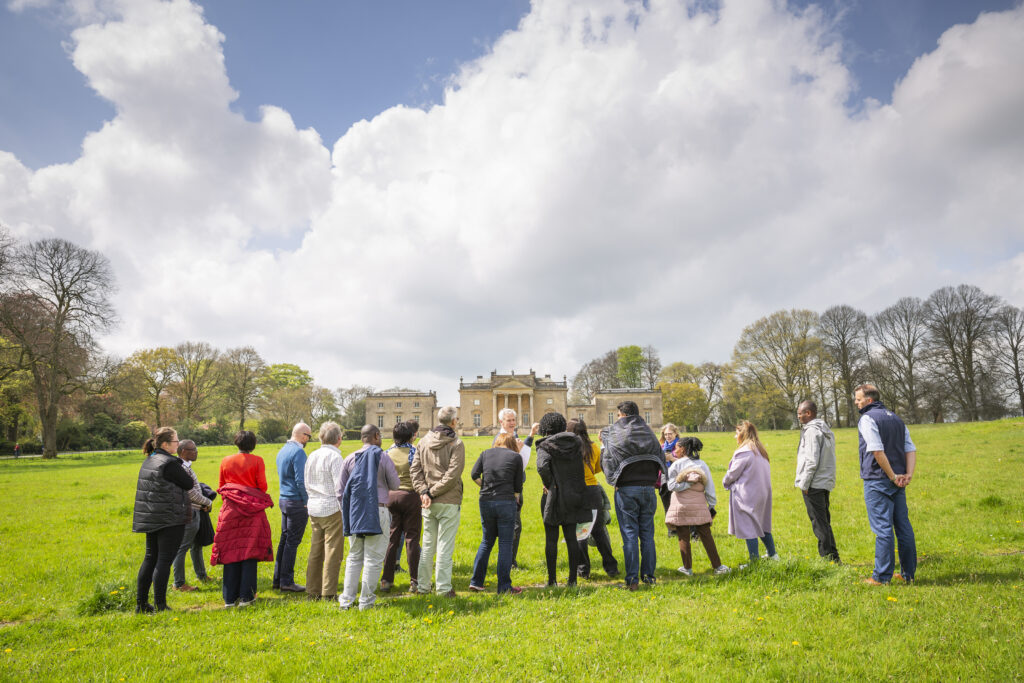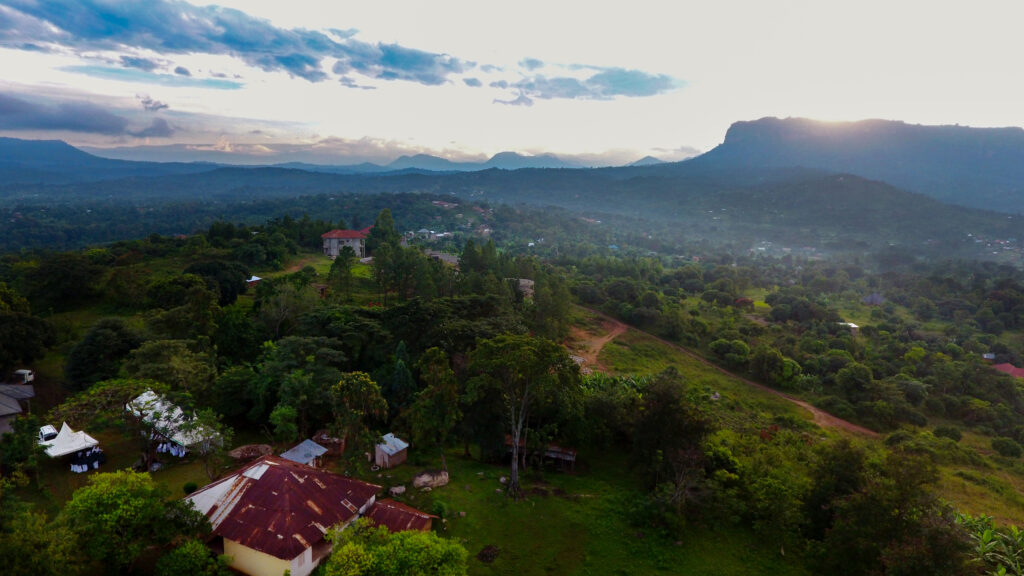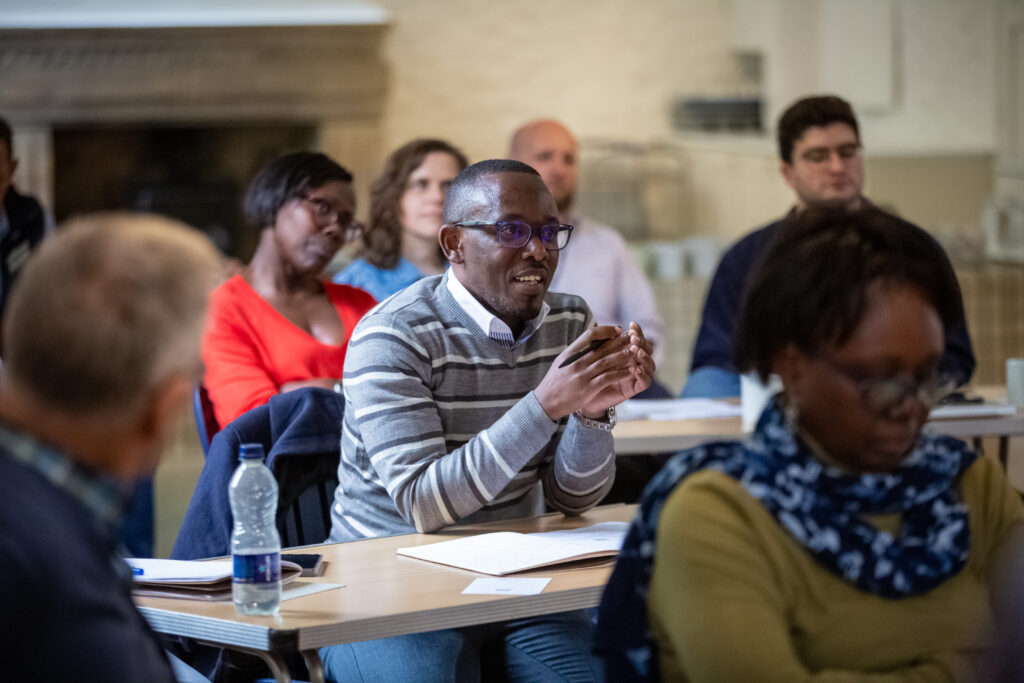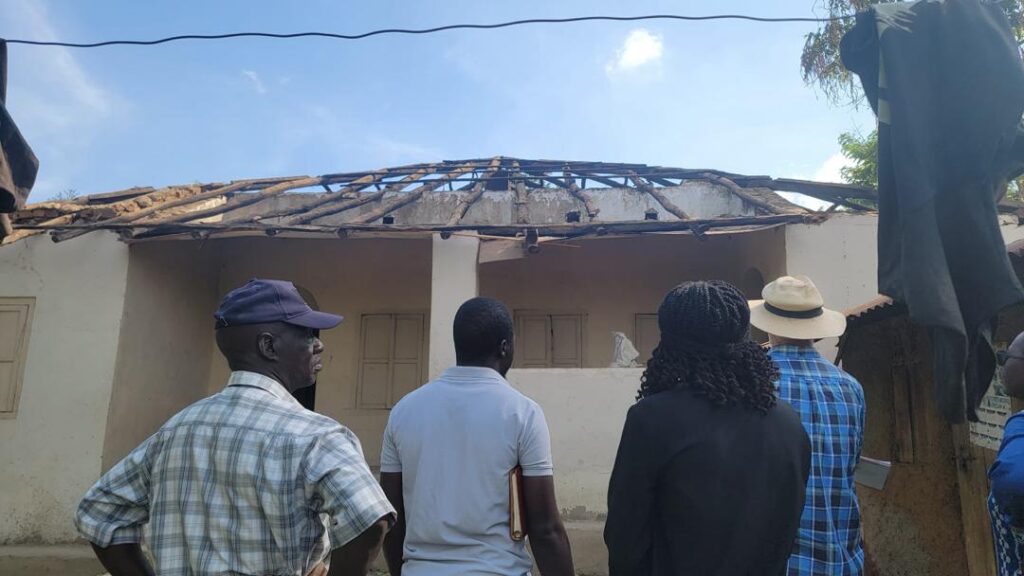Working together to adapt to climate change: National Trust Stourhead and the Cross-Cultural Foundation of Uganda
As part of the Withstanding Change project, National Trust sites have been teaming up with heritage organisations in East Africa and the Middle East, to learn together about adapting historic places to climate change. The team at Stourhead in Wiltshire have been working with the Cross-Cultural Foundation of Uganda (CCFU).

Withstanding Change project partners at Stourhead in May 2023. (c) National Trust Images/James Dobson.
CCFU's project
The CCFU team are working to restore the Semei Kakungulu heritage site, located near Mbale in Eastern Uganda, to make it more resilient to climate change. Semei Kakungulu was a key figure in Uganda’s early colonial history. He was also an environmentalist, who planted vast groves of mvule trees and promoted the use of herbal medicine. The site includes Kakungulu’s residence, the remains of a synagogue associated with the Abayudaya religious sect, two mausoleums where Kakungulu is buried alongside family members, and a visitor centre that is currently under construction. The ultimate aim is to open the site to the public and welcome school groups, building awareness of the impact of climate change on historic places, and deepening the local community’s connection with their cultural heritage.

The Semei Kakungulu site on the edge of Mbale, Uganda. © Cross-Cultural Foundation of Uganda.
Climate adaptation in action
In May 2023, Simon Musasizi and Phiona Magoba from CCFU were able to visit Stourhead as part of a two-week study visit covering National Trust sites in England and Wales. After this, we had a series of online meetings to discuss the impacts of climate change on both Stourhead and the Semei Kakungulu site, and how to respond.

CCFU’s Simon Musasizi taking part in a workshop session at Stourhead in May 2023. (c) National Trust Images/James Dobson.
Both sites are affected by a number of climate hazards relating to increased rainfall. At Stourhead, more prolonged and intense bouts of rain are creating problems across the estate and the team is thinking carefully about how to manage the flow of water to prevent flooding downstream. The historic mansion is also impacted, and the team are considering upgrading the gutters and drains to ensure that excess rain doesn’t come into the building. Extremes of heat and fluctuating humidity – and an increase in pests – are also having an impact on the precious collection inside the house.
CCFU are facing some similar concerns. Eastern Uganda has seen a worrying increase in flooding and landslides due to climate change, with floods in 2022 resulting in twenty-four deaths and the displacement of thousands in Mbale city. Some of these problems are due to deforestation: at the Semei Kakungulu site, the vegetation on the surrounding slopes has been stripped away by logging activity as well as the expansion of the city. This has left the site vulnerable to landslides and soil erosion, with the access road requiring urgent work to stabilise it.

The CCFU team inspect the roof of one of the buildings at the Semei Kakungulu site. (c) Cross-Cultural Foundation of Uganda.
Over the course of our twinning partnership, the CCFU and Stourhead teams have talked about how to manage flooding through measures such as ‘leaky dams’ that slow the flow of water, and how to use planting to both absorb water into the landscape and restore biodiversity. We’ve been lucky to also hear from the team at the National Trust’s Fountains Abbey and Studley Royal, with whom CCFU have worked on a previous project to protect heritage from flood damage in the Rwenzori mountains. Most recently, we’ve also been discussing how to care for delicate collection items in the context of a changing climate.
The learning exchange between the two sites has covered how to raise local communities’ awareness of climate change and its impact on heritage – and we’ve had wide-ranging conversations about how best to engage visitors, from planning outdoor activities and events to reinterpreting colonial histories. We’re all looking forward to the next stage in this partnership – and especially to seeing CCFU’s site ready to welcome visitors in the near future!
